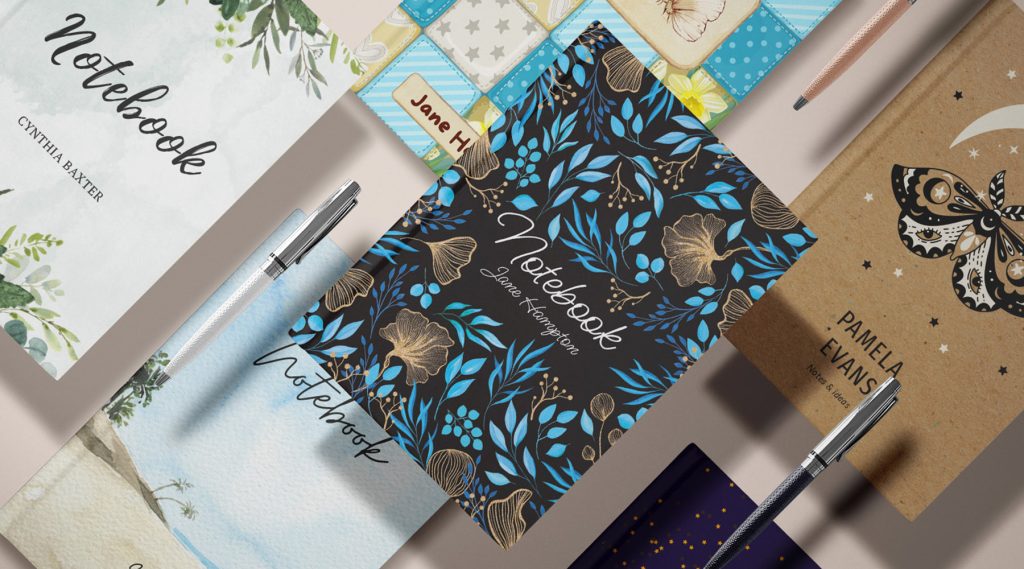What is journaling?
How to start journaling?
Choose your journal
Set a goal for journaling
Before you start journaling, it’s helpful to set a goal or intention for your practice. What do you hope to gain from journaling? Do you want to improve your mental health, explore your creativity, or gain clarity on your goals? Having a clear purpose for your practice can keep you motivated and focused.
Pick a time and a place
Choose a time and a place that works for you to journal. It could be in the morning, before bed, or during your lunch break. It could be in a quiet corner of your home, in a park, or at a café. Find a time and a place where you can be present and undisturbed.
Decide on a journaling method
There are many different methods of journaling, from stream-of-consciousness writing to bullet journaling to creative journaling. Experiment with different methods and find the one that resonates with you. You could also combine different methods or switch it up depending on your mood and needs.
Benefits of journaling
Journaling has many benefits for your mental, emotional, and physical health, as well as personal growth.
Mental health benefits
Journaling can have a positive impact on your mental health by helping you manage stress, anxiety, and depression. When you write down your thoughts and feelings, you release them from your mind and gain a sense of clarity and perspective. This can help you identify patterns of negative thinking and develop more positive coping strategies.
Emotional benefits
Journaling can also help you process your emotions and regulate your mood. By writing about your feelings, you can gain a deeper understanding of yourself and your emotional triggers. This can help you develop greater emotional awareness and improve your ability to manage your emotions.
Physical health benefits
Journaling can have physical health benefits as well. Studies have shown that journaling can boost your immune system, improve sleep quality, and reduce symptoms of chronic illness such as asthma and rheumatoid arthritis.
Personal growth benefits
Journaling can also be a powerful tool for personal growth and self-discovery. By reflecting on your experiences, values, and beliefs, you can gain a greater understanding of yourself and your place in the world. This can help you identify your strengths and weaknesses, set goals, and make positive changes in your life.
Techniques for journaling
There are many different techniques for journaling, and the best one for you depends on your goals and preferences.
Stream-of-consciousness writing
This involves writing down your thoughts and feelings as they come to you, without worrying about grammar, spelling, or punctuation. The goal is to let your thoughts flow freely and capture them on paper.
Gratitude journaling
This involves writing down things you are grateful for each day. This can help you cultivate a more positive outlook on life and improve your overall well-being.
Bullet journaling
This involves using bullet points and symbols to organize your thoughts and tasks. It’s a great method for staying organized and productive.
Creative journaling
This involves using art, music, or other creative outlets to express your thoughts and feelings. It can be a great way to tap into your creativity and explore your inner world.
Reflective journaling
This involves reflecting on your experiences and using them as a source of insight and growth. It can help you identify patterns and themes in your life and develop greater self-awareness.
Tips for successful journaling
Here are some tips to help you get the most out of your journaling practice:
Write consistently
Make journaling a regular habit by setting aside time each day or week to write. This can help you stay accountable and committed to your practice.
Write without judgment
Don’t worry about grammar, spelling, or punctuation. Write freely and without judgment. This can help you tap into your creativity and express yourself more fully.
Use prompts
If you’re stuck or need inspiration, try using prompts to get your writing flowing. Prompts can be anything from a quote to a question to a visual image.
Review and reflect
Periodically review your journal entries to see patterns and themes in your writing. Reflect on what you’ve learned and how you’ve grown.
Common challenges and solutions
Here are some common challenges that people face when starting a journaling practice, along with solutions to overcome them:
Lack of time
Make journaling a priority by setting aside time each day or week to write. Consider journaling in the morning or before bed to make it a regular part of your routine.
Writer’s block
If you’re feeling stuck or uninspired, try switching up your journaling method or using prompts to get your writing flowing. You could also try journaling in a different location or at a different time of day.
Fear of being vulnerable
It’s natural to feel vulnerable when writing about your thoughts and feelings. Remember that your journal is a private space for you to explore your inner world, and there’s no need to share your writing with anyone else. Try to let go of any fears or judgments and write from a place of authenticity.
Feeling overwhelmed
If you’re feeling overwhelmed by your emotions or the process of journaling, try to break it down into smaller steps. Start with just a few minutes of writing each day and gradually increase as you feel more comfortable.
Conclusion
Journaling can be a powerful tool for personal growth, self-discovery, and overall well-being. By regularly reflecting on your experiences and emotions, you can gain greater insight and perspective into your life. Whether you’re looking to manage stress, regulate your mood, or cultivate greater self-awareness, journaling can help you achieve your goals. So grab a notebook and pen, and start writing!
FAQs
-
Do I need to write in my journal every day?
No, you don’t need to write in your journal every day. The frequency and consistency of your journaling practice is up to you. Some people find it helpful to write every day, while others prefer to write once a week or when they feel inspired. -
Can I use a digital journal instead of a physical one?
Yes, you can use a digital journal instead of a physical one. There are many apps and programs available for digital journaling. -
Do I need to have a specific goal or focus for my journaling practice?
No, you don’t need to have a specific goal or focus for your journaling practice. You can write about anything that comes to mind, or use prompts to get your writing flowing. -
What should I do with my journal once it’s full?
You can keep your old journals for personal reflection, or you can choose to dispose of them if you prefer. Some people also choose to digitize their old journals for easier storage and organization. -
Can journaling replace therapy or professional help?
While journaling can be a helpful tool for self-reflection and personal growth, it is not a substitute for professional help. If you are experiencing mental health issues or emotional distress, it’s important to seek support from a licensed therapist or healthcare provider.










